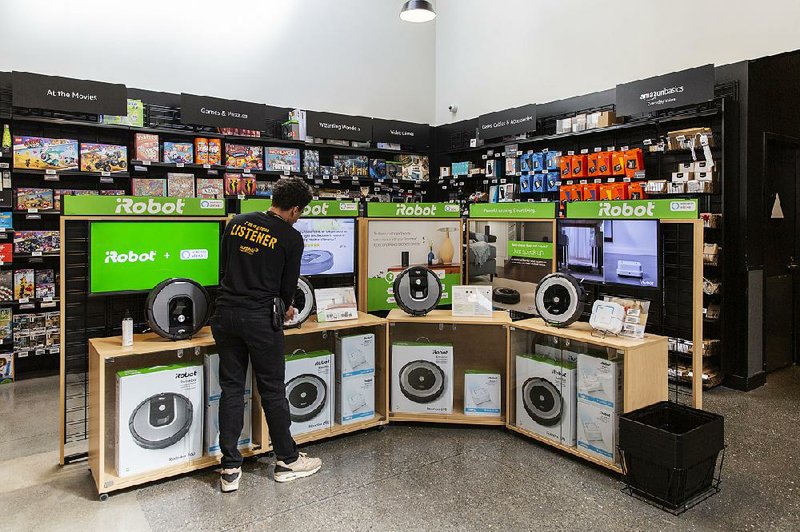Amazon.com Inc. will spend $800 million in the current quarter to reduce delivery times for top customers to one day from two, trying to revive its main e-commerce franchise and ward off greater competition.
The announcement came after the online retailer on Thursday reported first-quarter profit that exceeded analysts' estimates, demonstrating the company's focus on cloud computing, advertising, and other high-margin businesses continues to pay off.
Amazon Chief Financial Officer Brian Olsavsky later put the attention back on Amazon Prime, the subscription program that helped make the company the world's largest online retailer. Amazon charges Prime customers monthly and annual fees -- typically $119 in the U.S. -- in exchange for shipping discounts and access to music and video programming. It offers free two-day delivery on many items.
That benefit is less of a draw now than when it was first launched in 2005. Established retailers and startups have closed the gap on Amazon's offer of convenience. Walmart is delivering from its giant store network, as well as enticing people to order items online and pick up in stores. Over the holiday shopping season, Target made waves by scrapping minimum order sizes to qualify for free shipping.
"It is a smart change, but it is also one that is becoming increasingly necessary," said Neil Saunders, managing director at GlobalData Retail. "Other retailers have really upped their game in terms of delivery."
Still, Saunders said the shift is likely to put even more pressure on Amazon's retail rivals, as shoppers become accustomed to even faster shipping times.
The news bolstered Amazon's shares, sending them up 2.54% to $1,950.63 in New York on Friday. At the same time, Target and Walmart fell 5.65% and 1.92%, respectively.
Walmart and Target offer free two-day shipping for those who spend over $35 on their website. And both companies have been turning their stores into shipping hubs, speeding up deliveries and helping to defray costs.
Walmart Inc. declined to comment Friday. Target Corp. said its shoppers already have ways to receive purchases "within hours."
"To the extent it is able to fulfill this promise or, at least, the perception it is able to do, it will place a lot of pressure on the competition, most of which is still trying to ramp its 2-day efforts," analysts at D.A. Davidson wrote in a note to investors.
Amazon's e-commerce business saw unit sales grow 10% during the first three months of the year. That was the lowest ever. Total revenue increased 17%, the first year-over-year gain of less than 20% in a quarter since early 2015. Olsavsky said faster delivery times will increase the number and types of products customers are willing to buy from Amazon.
"We really think it's going to be ground-breaking for Prime customers," he said on a conference call after the results were released. "We have the capability because we've been at this for more than 20 years."
Olsavsky didn't offer a timeline for the project's rollout, which will begin in the U.S., saying "we expect to make steady progress quickly and through the year." He also didn't outline the extra ongoing costs Amazon will bear to take the program global.
Recently, the company started encouraging Prime members to group their orders for delivery on a single day. That helps Amazon consolidate shipping -- and, if customers follow through -- may hold down the cost of the new one-day pledge.
Amazon kept a lid on delivery costs in the period ended March 31, spending $7.3 billion in the quarter. That's a gain of 21% from a year earlier, but well below the pace of the increases seen in recent years.
Still, expenses related to the new Prime perk, and the suggestion of more to come in a profit forecast that fell short of estimates, contributed a dour note in Amazon's otherwise upbeat earnings.
First-quarter earnings were $7.09 a share, the Seattle-based company said in a statement. Analysts had projected $4.67 a share. Sales were $59.7 billion, compared with $51 billion in the period a year earlier -- in line with the average estimate of analysts compiled by Bloomberg.
The retailer has been buoyed in recent quarters by increasing sales in cloud computing, digital advertising, and services for third-party sellers on Amazon's retail site, all of which are more profitable than the company's central online business.
Information for this article was contributed by Matt Day and Spencer Soper of Bloomberg News; and by Joseph Pisani of The Associated Press.
Business on 04/27/2019
